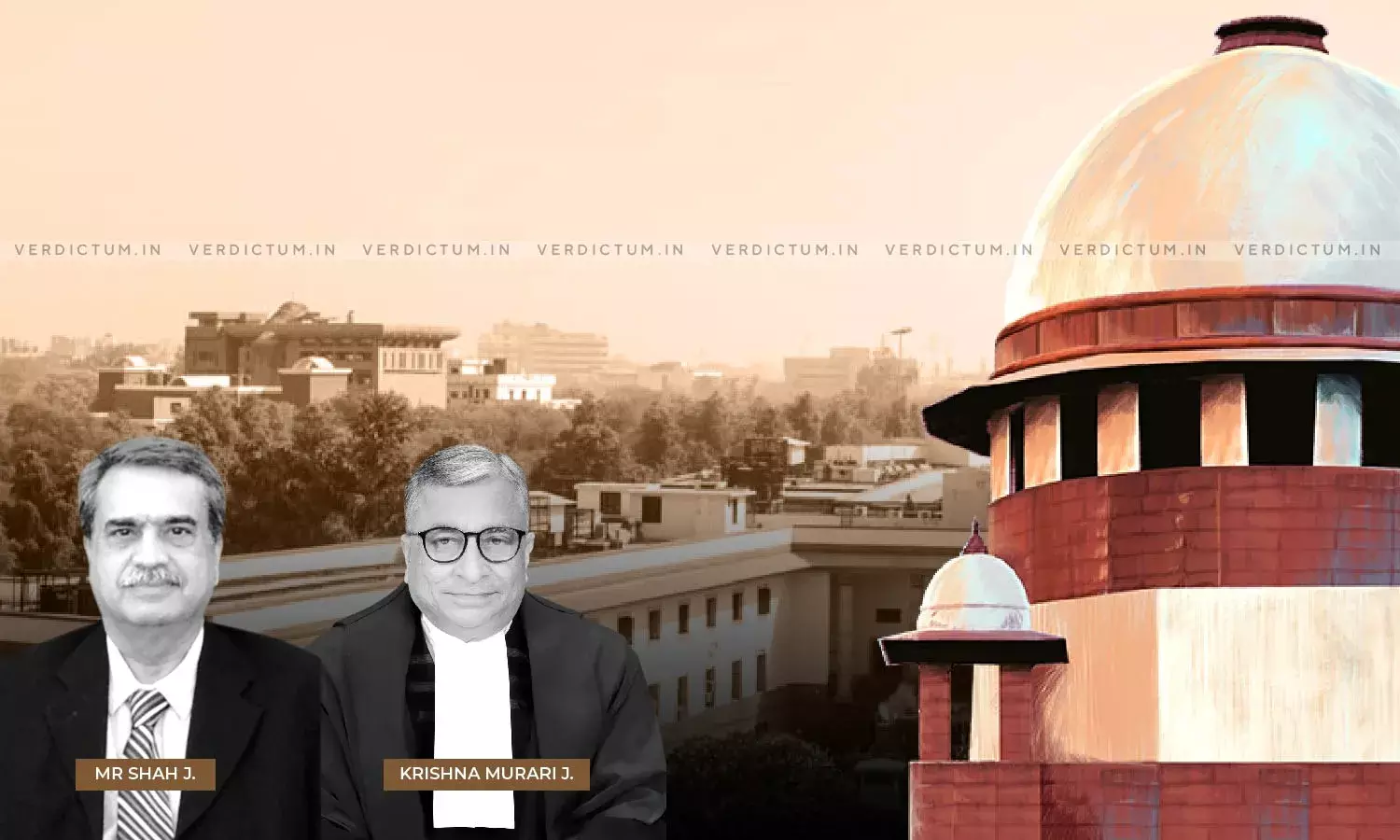Accused Can Be Convicted Even If Weapon Is Not Recovered, If There Is Direct Evidence In The Form Of Eye Witness: SC

The Supreme Court has held that an accused can be convicted even in the absence of recovery of weapon if there is direct evidence in the form of eye witness.
"If there is a direct evidence in the form of eye witness, even in the absence of recovery of weapon, the accused can be convicted.", the Court held.
The Court also observed that "As per the settled position of law, there can be a conviction on the basis of the deposition of the sole eye witness, if the said witness is found to be trustworthy and/or reliable."
The bench of Justice M.R. Shah and Justice Krishna Murari, in this appeal has set aside and quashed the order of the Madras High Court whereby the Court allowing the appeal, has acquitted the accused for the offences punishable under Sections 302 and 302 r/w 34 of Indian Penal Code, 1860 and has reversed the order of conviction passed by the Trial Court
Facts of the case -
As per the prosecution case, the accused murdered the deceased owing to animosity between the friend of the accused. The accused suspected the deceased of informing the whereabouts of his friend, who was murdered. The accused along with other accused chased down the deceased with weapons and killed him.
Advocate Dr. Joseph Aristotle S., appearing on behalf of the State, submitted that PW1 was present and he had seen the occurrence of the incident and that there is no reason to disbelieve the testimony of PW1, who is the Eye Witness and has fully supported the case of the Prosecution.
Advocate Rao Ranjit appearing on behalf of the accused, submitted that out of the six witnesses examined by the prosecution as eye witnesses, three witnesses – PW2, PW3 and PW5 have not supported the case of the prosecution. It is submitted that PW4 has been disbelieved even by the learned trial Court due to material contradictions in his deposition. Therefore, to rely upon the sole witness – PW1 is not safe to convict the accused.
Hearing both sides, the Apex Court observed that "the submissions on behalf of the accused that as the original informant – Mahendran has not been examined and that the other independent witnesses have not been examined and that the recovery of the weapon has not been proved and that there is a serious doubt about the timing and place of the incident, the accused are to be acquitted cannot be accepted. Merely because the original complainant is not examined cannot be a ground to discard the deposition of PW1. If there is direct evidence in the form of eye witness, even in the absence of recovery of weapon, the accused can be convicted. Similarly, even in the case of some contradictions with respect to timing of lodging the FIR/complaint cannot be a ground to acquit the accused when the prosecution case is based upon the deposition of eye witness........
PW1 is the eye witness to the occurrence at both places. Similarly, assuming that the recovery of the weapon used is not established or proved also cannot be a ground to acquit the accused when there is a direct evidence of the eye witness. Recovery of the weapon used in the commission of the offence is not a sine qua non to convict the accused."
Accordingly, the impugned judgment and order passed by the High Court acquitting the accused for the offences under Sections 302 and 302 r/w 34 IPC is hereby quashed and set aside and the judgment and order passed by the learned trial Court convicting the accused for the offences under Sections 302 and 302 r/w 34 IPC is hereby restored.
Cause Title- State through the Inspector of Police vs. Laly @ Manikandan & Another Etc.
Click here to read/download Judgment

